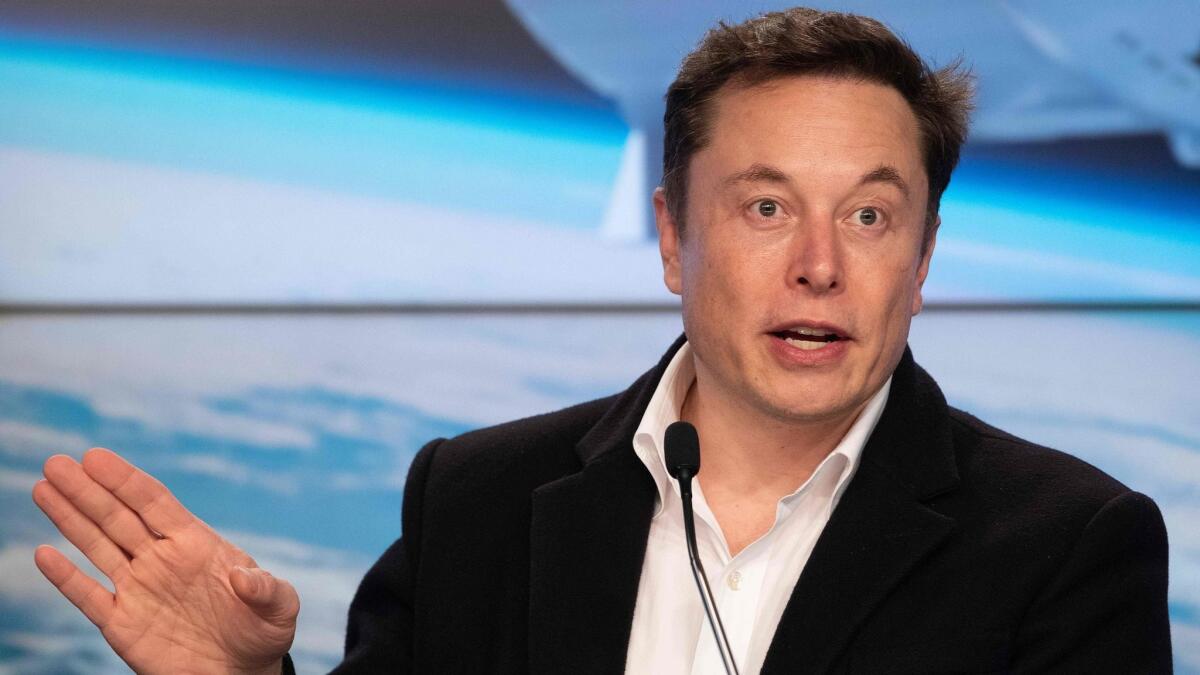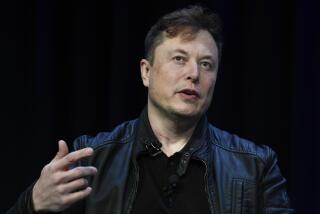Elon Musk defends his Tesla tweets and says SEC is overreaching

Elon Musk told a New York judge that a pair of tweets he sent last month about Tesla Inc. weren’t improper, pushing against a request by the U.S. Securities and Exchange Commission to hold him in contempt for violating earlier restrictions on his social media posts.
The billionaire Tesla chief executive cited his constitutional right to free speech, his efforts to comply with the restrictions and even his reduced volume of tweets in his defense against the SEC claims in a filing Monday in Manhattan federal court. The SEC has said his Twitter posts forecasting production of Tesla’s electric vehicles were misleading and hadn’t been vetted as required by an earlier order.
Musk said he has “dramatically decreased the amount that I tweet about Tesla” and has cut his average monthly Tesla-related tweets nearly in half.
“This is not because I am concerned about noncompliance, but rather because I want to err on the side of caution to avoid unnecessary disputes with the SEC,” Musk wrote in a statement submitted to the court. Musk told the judge that Tesla’s designated “disclosure counsel” and other members of Tesla’s legal department have reviewed the controls and procedures with him on multiple occasions.
Musk’s team argued that the contempt request is an example of “unprecedented overreach” on the part of the SEC, done in the wake of the CEO’s “sincerely held criticism” of the regulator on the television news show “60 Minutes.” In that interview, Musk said he had no respect for the SEC and that none of his tweets had been censored since he reached the settlement with the agency.
“The SEC has not cited — and counsel has not identified — any prior case in the last decade where the SEC has sought a contempt order to enforce the type of injunction at issue here,” they said in the filing.
For Musk, the stakes are high in his latest run-in with the securities regulator. Late last year, his Twitter musings about taking the company private resulted in $40 million in fines, the appointment of independent directors to Tesla’s board and replacement of Musk as the board’s chairman. His settlement with the SEC also called for an in-house attorney to approve future Tesla-related tweets. His court filing met a Monday deadline set by the judge.
If U.S. District Judge Alison Nathan finds Musk in contempt, she’s empowered to impose new fines, order additional controls on Musk’s social media use and even suspend or bar him from running Tesla or any other public company. Nathan hasn’t said when she’ll rule on the request.
The risk of Tesla losing Musk has spooked shareholders before. The company’s market value plunged $7.3 billion on Sept. 28, the day after the SEC sought to bar him from serving as an officer or director. The following day, Musk and Tesla settled with the SEC and agreed he would step down as chairman for at least three years but could continue to be chief executive.
Legal experts say the SEC and the judge will probably try to avoid punishing Musk in a way that harms shareholders, which means a permanent ban from running the company is unlikely.
The judge will evaluate posts Musk made Feb. 19 to his 25 million Twitter followers, where he gave one figure for 2019 vehicle production and then amended it a few hours later.
Monday’s filing comes after Musk got a new legal team, turning to a firm led by former Enron prosecutor John C. Hueston. Hueston is defending Musk in a defamation lawsuit by British caver Vernon Unsworth, whom Musk called a “pedo guy” in a tweet.
Hueston’s Los Angeles law firm replaces Williams & Connolly, the home of Dane Butswinkas, who quit his job as Tesla’s chief in-house lawyer last month to return to the white-shoe law firm.
More to Read
Inside the business of entertainment
The Wide Shot brings you news, analysis and insights on everything from streaming wars to production — and what it all means for the future.
You may occasionally receive promotional content from the Los Angeles Times.










